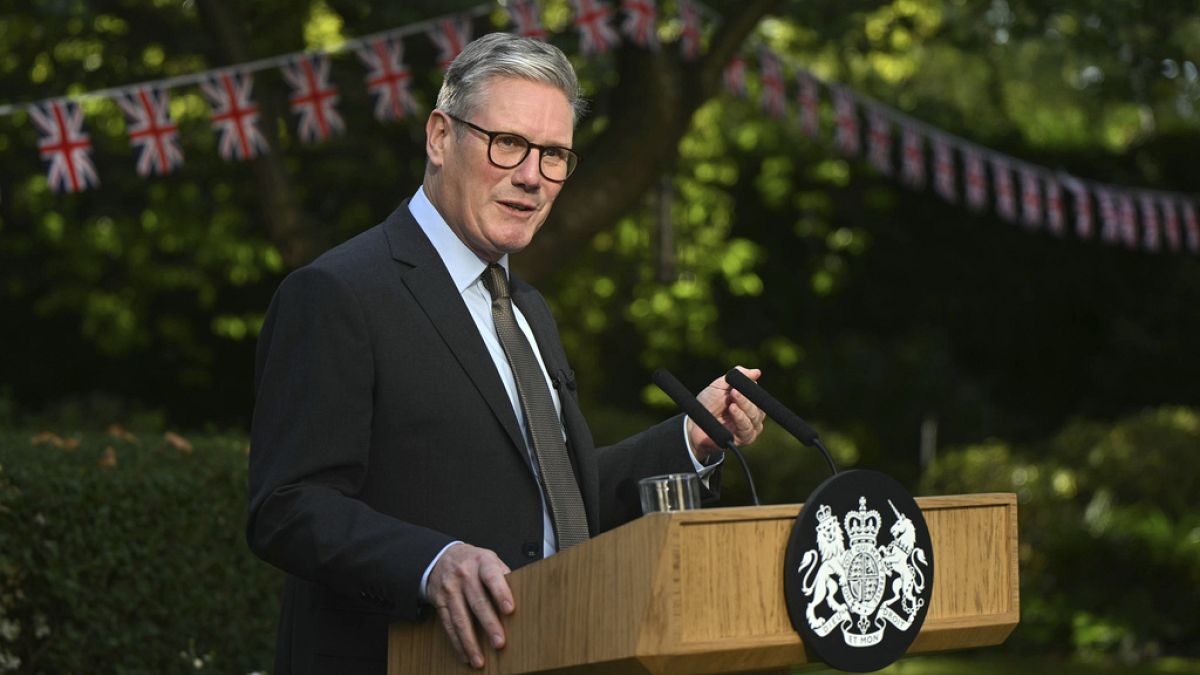UK Prime Minister Keir Starmer is facing backlash over recent donations and the high salary of his chief-of-staff less than three months after being elected. Starmer denies any wrongdoing regarding donations from wealthy businessman Waheed Alli, who has paid for thousands of pounds worth of clothes and spectacles for him. Additionally, the £170,000 (€202,000) annual salary of chief-of-staff Sue Gray has sparked controversy, especially since it exceeds the prime minister’s salary. Despite claims of impropriety, Starmer insists he is following the rules and missed the deadline for declaring donations as he was verifying what needed to be declared.
The government has stated that the salaries of political advisers, including Gray’s, are not set by politicians but by an official process. Gray, a former senior civil servant known for leading an investigation into lockdown-breaching parties during the COVID-19 pandemic, has faced criticism from government officials, with Conservatives alleging bias in her work. Labour has accused the Conservatives and their media allies of deliberately leaking Gray’s salary and donation revelations to tarnish the government’s reputation. MPs are allowed to accept gifts, but they are required to declare donations and extra-parliamentary income within 28 days, a deadline that Starmer missed due to seeking advice on what needed to be declared.
Starmer’s acceptance of freebies, including tickets for Premier League games involving his favorite team Arsenal, has raised eyebrows among supporters and critics alike. He has declared over £100,000 (€119,000) worth of “gifts, benefits, and hospitality” since December 2019, making him the highest recipient among MPs. Despite the scrutiny, Starmer defended his acceptance of gifts, citing security reasons for not being able to attend games without hospitality. He rejected the idea of a wardrobe budget for prime ministers, emphasizing that taxpayers should not have to pay for politicians’ clothes.
The controversy surrounding Starmer’s donations and his chief-of-staff’s salary comes as a blow to his promise to restore trust in politics after his landslide victory in July. The Labour Party leader has denied any wrongdoing and maintains that he follows the rules regarding the declaration of gifts and income. The Conservatives have criticized Starmer and Gray, accusing them of bias and impropriety, which both have denied. The revelation of donations and salary figures has sparked debate around the transparency and accountability of political figures and their associates, with many questioning the ethics of accepting gifts and high salaries in the public eye.
As the accusations and criticisms against Starmer and Gray continue to circulate, the issue of political integrity and accountability remains at the forefront of public discourse. The controversy surrounding the donations and salary of key figures in Starmer’s administration raises concerns about conflicts of interest and potential ethical violations in the highest echelons of government. The fallout from these revelations underscores the challenges faced by political leaders in navigating the complexities of public perception and maintaining trust in a system fraught with scrutiny and skepticism. Whether Starmer can weather the storm and emerge with his credibility intact remains to be seen, as the spotlight on his actions and those of his closest aides intensifies in the wake of these controversies.











